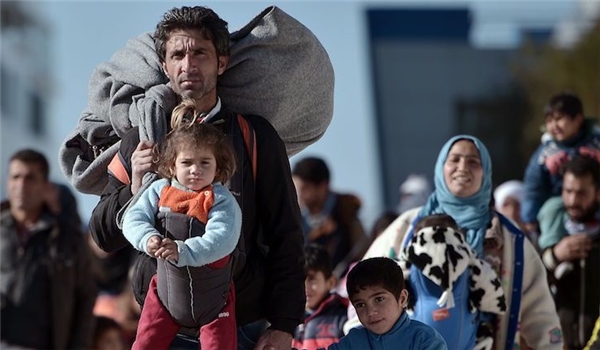
RNA - However, that hasn’t stopped IOM, the UN Migration Agency, from appealing for nearly $1.4 billion to address the needs of over 80 million people in 50 countries in 2018. These vital funds will support people displaced within the borders of their own countries, migrants, refugees and the communities that host them, people returning to their areas of origin and people experiencing or recovering from conflict and natural disasters. This appeal covers planned activities in crisis prevention and preparedness, emergency response, transition and recovery.
IOM’s humanitarian programming aims not only to save lives but to help affected communities stabilize, build resilience and find solutions. The long-term impact of its responses is of paramount importance. Whether displaced by the US-led war on Syria, returning home to a recently liberated neighbourhood in Mosul or in Bangladesh, where over 800,000 Rohingya refugees have settled, millions of people are in need not only of emergency assistance and protection but of innovative support that helps them get back on their feet, more resilient than they were before. This is IOM’s goal for 2018 and as a member of the UN, the United States is obligated to respond as well.
Guess what? Washington has done the opposite. That’s why international organizations continue to criticize Washington’s decision to cut more than half of planned funding to the UN agency serving refugees, particularly those in occupied Palestine, where the US is withholding $65 million from a planned 125-million-dollar aid package for the UN Relief and Works Agency for Palestinian Refugees (UNRWA).
UNRWA serves over 5 million refugees with education, healthcare, social services, and emergency assistance in the Middle Eastern region. As the US was the agency’s biggest donor, contributing over $350 million in 2017, UNRWA is now facing its biggest financial crisis. At stake is the dignity and human security of millions of Palestine refugees in need of emergency food assistance and other support, and access of refugees to primary healthcare including pre-natal care and other life-saving services.
True, the Muslim world should also do something about this. But for the time being, they prefer to bomb Yemen where the US-backed, Saudi-led war has created another humanitarian crisis in which over 15 million people face famine and disease. The reduced contribution also impacts regional security at a time when the Middle East faces multiple risks and threats, notably that of further radicalization.
In Palestine, the funding cut will have devastating consequences for vulnerable Palestinian refugee children who depend on the agency for their education. It will deny their parents a social safety net that helps them to survive, and undermine the UN agency’s ability to respond in the event of another flare-up in the Israeli-Palestinian conflict.
UNRWA provides education to over half of a million boys and girls in 700 schools and manages more than 9 million refugee patient visits at over 140 clinics. Many Palestinian refugees live in poverty, including the majority of those in Syria who require humanitarian assistance to survive.
The Trump White House claims the decision was made to press for unspecified reforms in the agency. Though the State Department spokesperson Heather Nauert says the move was not made to pressure Palestinians to enter negotiations, President Donald Trump has suggested otherwise in a series of tweets just weeks before the decision. He tweeted: “We pay the Palestinians HUNDREDS OF MILLIONS OF DOLLARS a year and get no appreciation or respect; with the Palestinians no longer willing to talk peace, why should we make any of these massive future payments to them.”
This is while UNRWA is an aid agency rather than a party to the so-called peace process. The Trump administration seems intent on holding them hostage - and ultimately punishing vulnerable Palestinian refugees - as an indirect way to put pressure on the Palestinian Authority to join peace talks.
For all this, Washington must share much of the blame but not in the way that most of the war-party isolationists might think. The crisis has reached Europe and America not because politicians haven’t defended their own borders (they did, erecting fences in Bulgaria, Greece, Spain and Hungary, while Washington is building the Mexican Wall and bans Muslims from travelling to the US) but because such defences ultimately don’t work against people who are so desperate to breach them.
The message is clear: the international civil society stands with the refugees. The failure to respond to the global refugee crisis risks further conflict, triggering further refugee flows. This is not a crisis of numbers; it is a crisis of politics. Putting in place policies to discourage refugees is not the answer. The Syrian refugee crisis has been a tragedy. But if Europe and the United States are willing to learn from it, it can also be an opportunity for change. When refugees are treated as potential contributors, some good can be rescued from the US-made disaster.
847/940